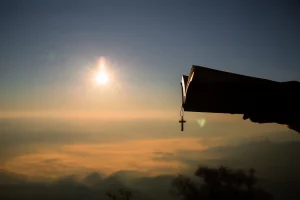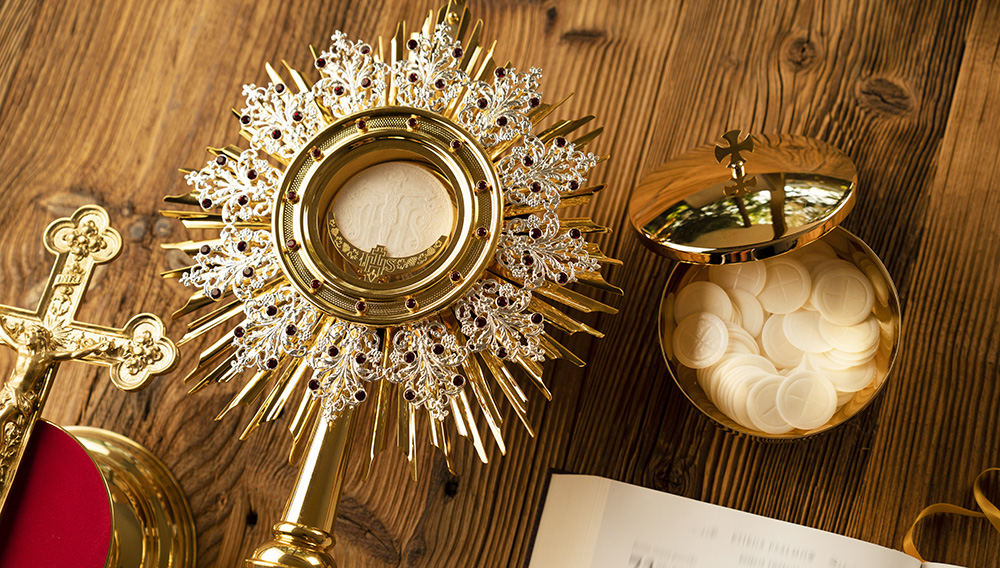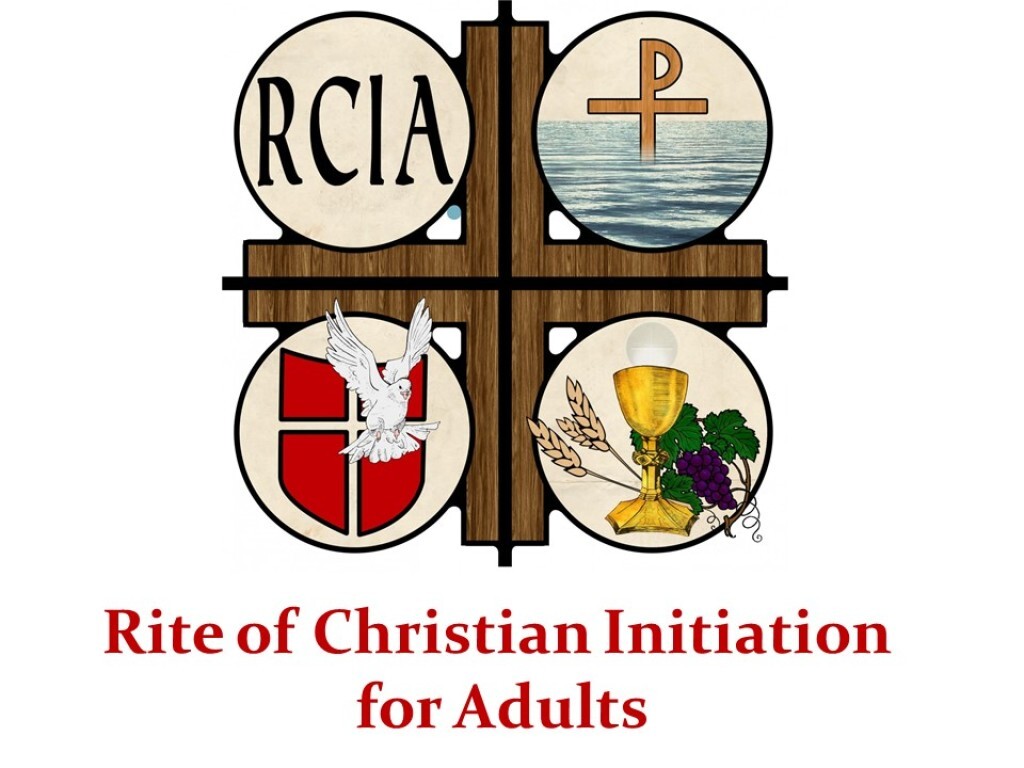OUR CHRISTIAN FAITH
 We are Christians, those who believe in Jesus Christ as the Son of God and Savior of the world. We believe he was born, lived, suffered, died and resurrected. He is the fullness of revelation of God.
We are Christians, those who believe in Jesus Christ as the Son of God and Savior of the world. We believe he was born, lived, suffered, died and resurrected. He is the fullness of revelation of God.
We believe in one God who is three persons, the Trinity. We believe in God the Father, Son and Holy Spirit, three and one; in whose image we are created.
We believe that Father so loved us that he sent to us the beloved Son to save the world (John 3:16).
We continue the saving mission of Jesus Christ as Christians. We began our mission 2000 years ago with our traditions, Sacred Scripture and practice. All that we do as Catholics, through our acts of charity, worship, acts of morality is to continue and deepen our our call as disciples in that mission.
We believe that Jesus Christ proclaimed God’s love for all people, this is the Good News. He died as a willing act that shows the depths of God’s love, and that act is the culmination of God’s plan of salvation.
The Catholic Faith is diverse and holistic.
THE CATHOLIC CHURCH
Many people can think that “Church” refers to a building, but it actually means much more.
It is a community of the followers of Jesus who accept him as Son of God. We believe Jesus became human who has came to live among us. We share the same sacraments and worship together as members of God’s family.
Under the leadership of the Pope, who is the successor to Saint Peter, the person appointed by Jesus to lead His Church, the pastoral ministry of Jesus continues to be proclaimed.
The Bishop of the Diocese pastors the local Church, the Diocese. He, along with all Bishops in their own diocese exercise teaching, governance and pastoral authority.
THE PARISH
The Parish is where most of the missionary work of the Catholic Church occurs. The Parish is where the community gathers for Worship, to celebrate the Sacraments, to pray and build community.
It is from the Parish that Catholics are sent forth into our homes, workplaces and schools; into all areas of our community to share the good news in word and deed.
It is in the parish that people come to us, searching for consolation, assistance and with their questions.
THE EUCHARIST
The Eucharist is the Source and Summit of all that we do and are as Catholics.
The Eucharist is the visible sign of the invisible reality of Christ’s Paschal Mystery, his death, burial and resurrection.
We gather each week as Catholics to celebrate and Give thanks for the gift of God’s love in and through Christ.
We go forth to proclaim that love in our homes, schools, work and in play.
WHAT THE CHURCH TEACHES...
THE EUCHARIST – SOURCE AND SUMMIT OF ECCLESIAL LIFE
1324 The Eucharist is “the source and summit of the Christian life.” 136 “The other sacraments, and indeed all ecclesiastical ministries and works of the apostolate, are bound up with the Eucharist and are oriented toward it. For in the blessed Eucharist is contained the whole spiritual good of the Church, namely Christ himself, our Pasch.”137

1325 “The Eucharist is the efficacious sign and sublime cause of that communion in the divine life and that unity of the People of God by which the Church is kept in being. It is the culmination both of God’s action sanctifying the world in Christ and of the worship men offer to Christ and through him to the Father in the Holy Spirit.”138
BECOMING CATHOLIC
RITE OF CHRISTIAN INITIATION OF ADULTS ( RCIA )
The RCIA is primarily intended for those who are unbaptized and with no or very little history with a church, and who seek a relationship with Jesus Christ in the sacraments of initiation – Baptism, Confirmation and Eucharist at the Easter Vigil.
The RCIA is the inspiration and the structure of how a community ministers to someone who sets out on the path to adult initiation (and children of catechetical age) in the Catholic Church.
This is a process of discovery and self reflection, in which you explore the meaning of Christ in your life, and how that works with the Catholic Faith. So it is not to be so much an educational process, but one of transformation.
There are four major periods in the initiation process, separated by various liturgical rituals, which express and celebrate what is occurring at each stage in the process.

A period of conversion and transformation that can last as long as needed. The Catechumen deepens their relationship with Jesus Christ. He or She meets regularly with the RCIA team, attends Sunday Mass, and learns about themself and the faith.
At some point the catechumen reaches a decision point to become a full member of the Catholic Church, and they move onto the next phase.
Rite of Election–when a Catechumen is received by the Bishop and renamed an Elect. This rite only happens on the first Sunday of Lent. It is ritual in which all the catechumens within the Diocese come together with other candidates.
This period lasts 6 weeks, during the season of Lent. The Elect enter into a more deliberate mode of prayer in preparation for reception and celebration of the Sacraments at the Easter Vigil.
Sacraments of Initiation–The Elect celebrate baptism, confirmation and first Communion at the Easter Vigil (the great liturgy of the Church held the Saturday night before Easter Sunday). The Elect are now called Neophytes.
Mystagogy simply means the study and living of the Mystery. Ideally this is the Period after Easter until the following year’s Pentecost in which the neophytes continue to explore and live the Catholic Faith.
BAPTIZED CHRISTIANS WHO DESIRE TO BECOME CATHOLIC
The Church does not want to place unnecessary obstacles or burdens in anyone’s path to becoming Catholic. The Church, though, does want to help a Christian inquirer to deepen their faith and offer a thorough understanding and appreciation of Catholic beliefs and practice.
The catechesis and formation in preparation for being received into the Catholic Church by receiving the Sacraments of Confirmation and Eucharist for the first time will depend on one’s background and what might be needed to live a full and active Catholic life. While Christians hold many fundamental beliefs in common, many Catholic doctrines and traditions are not shared by all.
This does take time but does not need to be protracted and a Christian can be initiated when they and the parish community discern an understanding of the fundamental beliefs and traditions of Catholicism.
If you are interested or curious, please contact the office of your local parish so that the community can share their faith with you and apprentice you in the prayer and service, and the life and mission of the Catholic Church. You could speak with the priest after Mass but they are often busy at this time and unable to take down details. Why not introduce yourself, saying you will ring during the week.
VOCABULARY
Catechumen: A non-baptized person who has been through the Rite of Acceptance and seeks to deepen their relationship with Christ
Candidate: A baptized person from another mainline Christian faith who wishes to become Catholic.
Elect: A catechumen who has celebrated the Rite of Election and will receive the Sacraments of Initiation at Easter.
Neophyte: A newly baptized or received member of the Catholic Church.
Sponsor: A full initiated Catholic who journeys with the Catechumen/Elect.
Godparent: A fully initiated Catholic who stands as witness for the Sacraments of Baptism and Confirmation.
